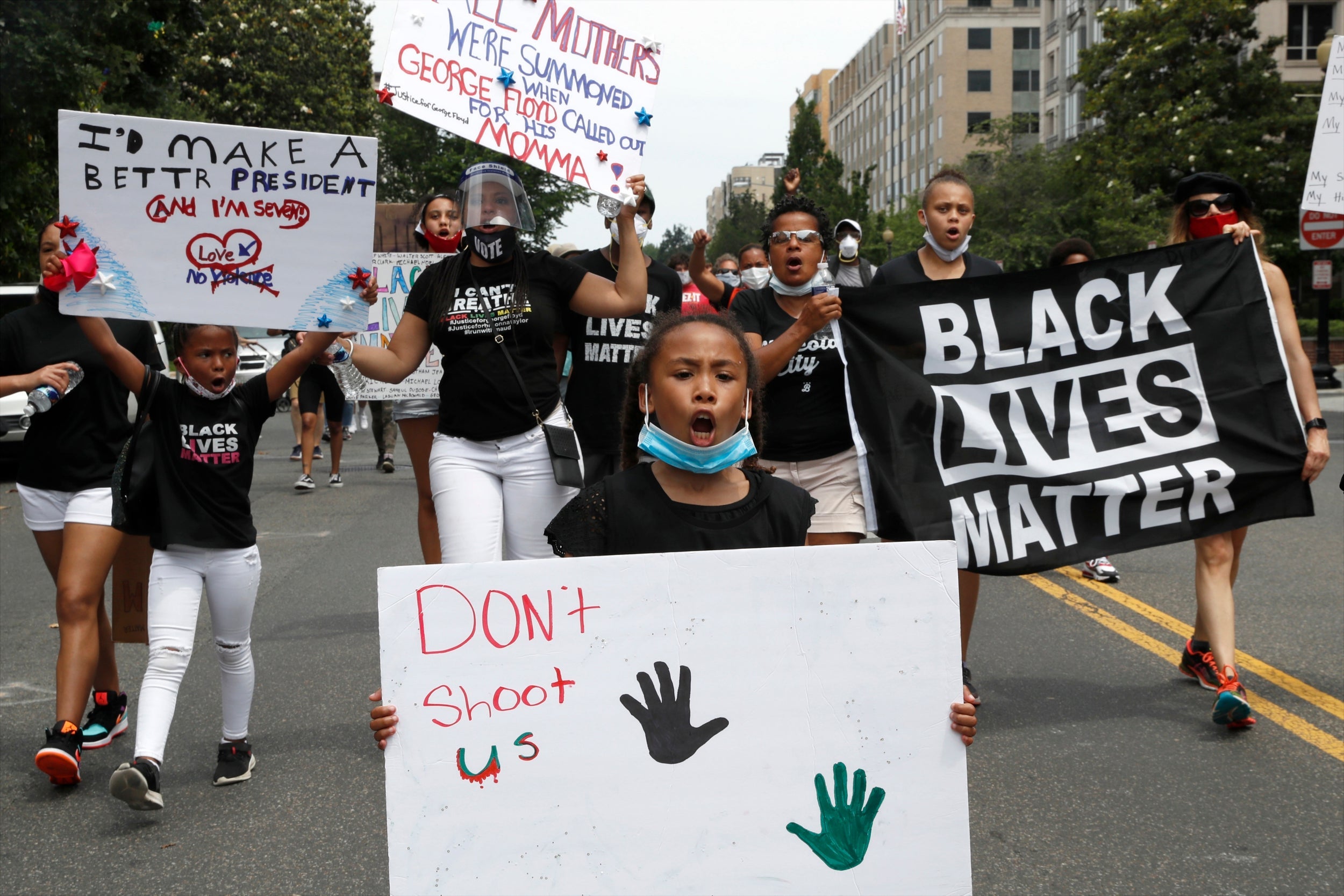I quickly learnt that people of colour have to be more well spoken, more well qualified – a bit extra, well, everything
Growing up in the 1980s, I was surrounded by racism, says Konnie Huq. Can Black Lives Matter finally rid our society of its hidden prejudices?


The tragic, senseless and brutal killing of George Floyd, and the subsequent rise to prominence of the Black Lives Matter campaign, has led to a resurgence of some amazing books and writers in the UK book charts. Bernardine Evaristo and Reni Eddo-Lodge have become the first black British women to top the UK’s fiction and nonfiction paperback charts respectively, and very deservedly so.
Books are so important in education and the progress within a society that it seems mad that this is what it took to achieve that. Instead of widespread racism triggering the need to read more broadly and improve education, the latter should have come first. The cause and effect is the wrong way round.
In a week in which a plane bearing the banner “White Lives Matter Burnley” was flown over the Etihad Stadium before a major football match, it seems we have a long way still to go.
As with all prejudice, it boils down to ignorance and a sheer lack of education. But problem can be subtle and deep seated, embedded in the DNA of our nation – more deeply than we even realise.
Growing up as a brown person in a very white neighbourhood in the 1980s, I inevitably felt different. There were times I would wish desperately that my mum didn’t wear a sari, that my parents didn’t eat curry, or that my skin was lighter. There were times I would think, “If only I was like everyone else...”
It’s a sentiment that was shared by my many of my non-white peers, I’m sure, but it’s one that horrifies me now.
I cannot count the number of times I’ve heard racist comments uttered by people who don’t think they are racist at all. It’s always qualified in their minds with an “I don’t mean you” or “you’re ok though”. Why am I ok?
I quickly learnt that to be accepted on the same playing field as our white counterparts, people of colour often have to be that much more well spoken or well turned out; that bit more qualified; possess that little bit extra, well, everything.
In life there are certain indicators of acceptance that follow us around. People from minority or disadvantaged backgrounds often need far more of these signifiers to get on in society. Can you imagine Boris Johnson – a man who will not confirm publicly how many children he has by how many women, and who ran an election campaign later found to be riven by fabrication – being accepted as prime minister if he was from a state school background, grew up on a council estate, or – perhaps most significantly – was black? The indicators of a posh accent, a private school education and attendance at Oxbridge endorse him before he has even done anything. And white privilege exists even where these common indicators of power do not; skin colour does half the job.
When I was growing up there were no ethnic minority characters in the books I read. Still today there are more children’s books featuring animals than there are with lead characters from diverse backgrounds. Yet children have no preconceived notions of society except those we place upon them.
I remember the first time I heard a woman’s voice on the radio, thinking “I didn’t realise women were on the radio” .That wouldn’t happen now. Yet many young Asians I meet say to me that my being on Blue Peter encouraged them to believe they could fulfil their own ambitions. We need to stop seeing stories like the brutal death of George Floyd and start seeing more positive representation.
My children did hear about Floyd; their school held an online assembly on the issue of Black Lives Matter. When they grow up, hopefully they’ll be able to say thankfully we have come along far enough that that wouldn’t happen now.
It’s great to see black authors riding high in the book charts – but unless we tackle the problem from both ends of the spectrum, there’s the worry they’ll ride back down again until the next “wake-up call”. Reading books and stories grant empathy to adults and children alike, and like no other medium. Empathy is what our future society needs in liberal doses, if it has any chance of righting today’s wrongs.
When I got my job on Blue Peter, I cringed at press headlines announcing me as the first Asian presenter. Once again I thought I wanted to be like everyone else. That sentiment was short-lived, however, I matured and began to realise that our cultural differences are the same as all the other details that define each of us; they’re what make us interesting. I later wrote my own children’s book with a central Asian character, Cookie, and her black best friend, Keziah. Children can dip into their lives and see that they, like everyone else, are flawed, imperfect and important.
To those that flew the banner over the Etihad it should be pointed out that of course white lives matter – all lives do. But unlike black or Asian lives, nobody has ever acted like they don’t.
Join our commenting forum
Join thought-provoking conversations, follow other Independent readers and see their replies
Comments